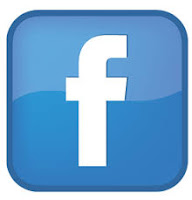Earlier this week, I had a fascinating email conversation with an author about Facebook Profiles vs. Pages. It got me thinking…
Our conversation started because this author has a Facebook Profile, but not a Page. She doesn’t use Facebook much, but she has a book out (her exceptional first novel), and so I recommended that she have a Page. Because she’s not a heavy Facebook user, I further suggested that she convert her existing Profile to a Page.
She—very smartly—ran this idea by some author friends, who were adamant that she not convert her Profile to a Page.
While I understand where these folks are coming from, I still disagree, primarily because Pages have changed pretty dramatically in recent months, and depending on how you use Facebook, having both creates more work for little or no return. The primary concern folks expressed was that Friends would be offended if her Profile suddenly became a Page to which they were automatically migrated…but the thing is, the way this process works now, the vast majority of them would never even notice.
Quick side note: The scenario I’m talking about is one where the author is question is a light Facebook user. This is not someone who already has a thriving Page or a Profile with thousands of friends. My recommendations are not necessarily applicable to every possible scenario, but I would argue that they work more often than not.
A Facebook Profile is your personal presence. For authors, your writing (that is, your product) is usually part and parcel of who you are, but chances are good that you have other things going on in your life that you keep separate from your work. And the further reality is that not everybody who reads your book is—or should be—your friend, not on social media or anywhere else. To put yourself in this position is to assume that you will never be really successful.
So…do you need a profile? No. Unless you’ve been using Facebook for a while and are comfortable there interacting with your actualfriends, having a page will serve you much better. Why? Glad you asked…
Pages are two-way communication venues.
I think the people the above-mentioned author spoke with are likely unaware that the biggest recent Pages changes concern how page admins interact with the Page’s audience. People can now send a direct (private) message to the page; this functionality works exactly the same way it does on Profiles. Also, we can now respond to a specific comment on a post. Overall, this gives a Page the ability to be just as personal as a Profile.
Pages facilitate sharing.
Pages are designed to encourage sharing, and they make this easier than Profiles do (unless all your info is public within your profile, which is always a bad idea).
There’s no difference between Page and Profile posts.
Personal status updates and page updates appear exactly the same way to readers. This is why converting a Profile to a Page won’t cause offense…because nobody will notice.
Just because someone’s a friend, doesn’t mean they support your work.
This is a tricky one, but the fact is, if you have a profile and create a page then ask your friends to like said page, few will. Very few. I’m not going to guess at the psychology behind this, but I’ve seen it time and again.
Pages are mobile-friendly.
More than half of the people who use Facebook do so from a mobile device. Enough said.
Pages are not just for selling stuff.
They used to be…but they’re not now. You can still sell stuff, of course, but more often than not, pages are accommodating content of every shape and size.
As Facebook continues to evolve, I’ve started seeing more authors who have both a profile and page, and insist on posting the same stuff on both. What a waste…of their time and my attention. Drives me bonkers because it means I see every post twice. These people should definitely merge the two (which, for the record, is not an easy process, but is now possible).
Also, it’s important to remember that in terms of attracting and interacting with new readers, Pages are much easier for readers to find than Profiles. And it also means you don’t need to risk upsetting potential readers because, as the saying goes, refusal [of a friend request] often offends.
Of course many authors will continue to have both a Profile and a Page (because, you know, not everyonelistens to or agrees with me). My point, though, is that particularly if you have yet to fully submerge yourself the in Facebook ocean, a Page is likely going to be a preferable vessel for you.
In other Facebook news, this week, they announced that hashtags used in posts will now be clickable. While some folks immediately got their knickers in a proverbial twist about this (Really? Have we nothing else to be outraged about?), I see this as great news for books. It means that if I do a Facebook post with a book title or author name hashtag, people can click it and see posts from other people on the same topic. Like any new functionality, this will take a while to catch on with all of Facebook’s billion users, but it will get there.



Thanks for the advice. Great post